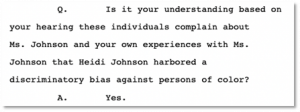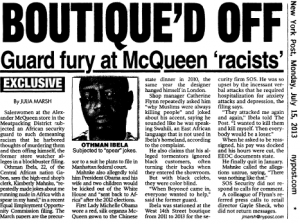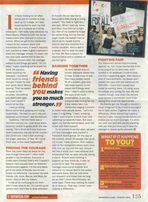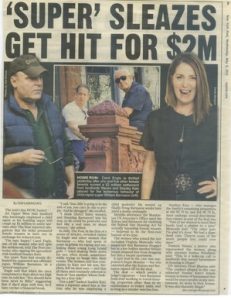A class of women working as truck drivers for CRST are waiting on a decision from the Eighth Circuit Court of Appeals that could revive claims that CRST retaliated against them by placing them on the equivalent of unpaid leave for complaining about sexual harassment. The Complaint in Sellars, et al. v. CRST Expedited, Inc., No. 1:15-cv-117 (N.D. Iowa), was filed in October 2015. The women who brought this case were team truck drivers who were paired up with one co-driver to run long haul routes across the country. The drivers earned pay by the mile, switching off driving duties and sleeping in an onboard berth area so that the truck rarely needed to stop. The plaintiffs alleged that they were sexually harassed by male co-drivers and driving trainers, who they claimed subjected them to sexual come-ons, requests for sexual favors in exchange for good driver training feedback, offensive sexual touching–including waking up in the sleeper berth with a male co-driver on top of them, and even threats of violence if they would not comply with sexual demands. They alleged that even after CRST claimed it had banned any particular alleged harasser from driving with women, the women went on to be sexually harassed by subsequent male co-drivers. For some women, this was enough to push them out of the industry altogether.
Plaintiffs also alleged, on behalf of a class of women drivers, that when a woman on a truck complained she was being sexually harassed by her co-driver, CRST’s standard response was to remove her from the truck, with the effect of immediately stopping her pay, and letting the alleged harasser continue driving and earning money. Plaintiffs argued that this discouraged women from making complaints. The district court initially granted both a hostile work environment and a retaliation class, allowing the Plaintiffs named in the Complaint to represent other women with similar alleged experiences. However, following discovery, the district court granted CRST’s motion to de-certify the hostile work environment class, and to dismiss both the retaliation class and individual claims.
This was not the end: the three named plaintiffs decided to appeal the dismissal of the class retaliation claim and their individual hostile work environment claims to the Eighth Circuit Court of Appeals (No. 19-2708, Sellars et al. v. CRST Expedited, Inc.). There, they argued that under very unusual circumstances such as these, where a woman may be harassed by multiple co-drivers sequentially, even if any particular alleged harasser might be banned from driving with women in the future, it can be sufficiently clear that harassment in the workplace is endemic that the employer is put on notice of the need to do more to address the problem. They also reiterated their argument that a pay cut inevitably deters women from complaining about sexual harassment, so taking women off their trucks as a response to their complaints is retaliatory. The Eighth Circuit heard oral argument on September 22, 2020, [available here: http://media-oa.ca8.uscourts.gov/OAaudio/2020/9/192708.MP3], and since then the women have been awaiting a decision. They hope to not only secure justice for themselves and other women at CRST, but to make clear once and for all that women should be free to come forward about sexual harassment in the workplace without fearing a pay cut.

 Sexual Harassment Lawyer Blawg
Sexual Harassment Lawyer Blawg





 At the same time she filed suit, the she organized a protest in front of the restaurant, which was
At the same time she filed suit, the she organized a protest in front of the restaurant, which was 